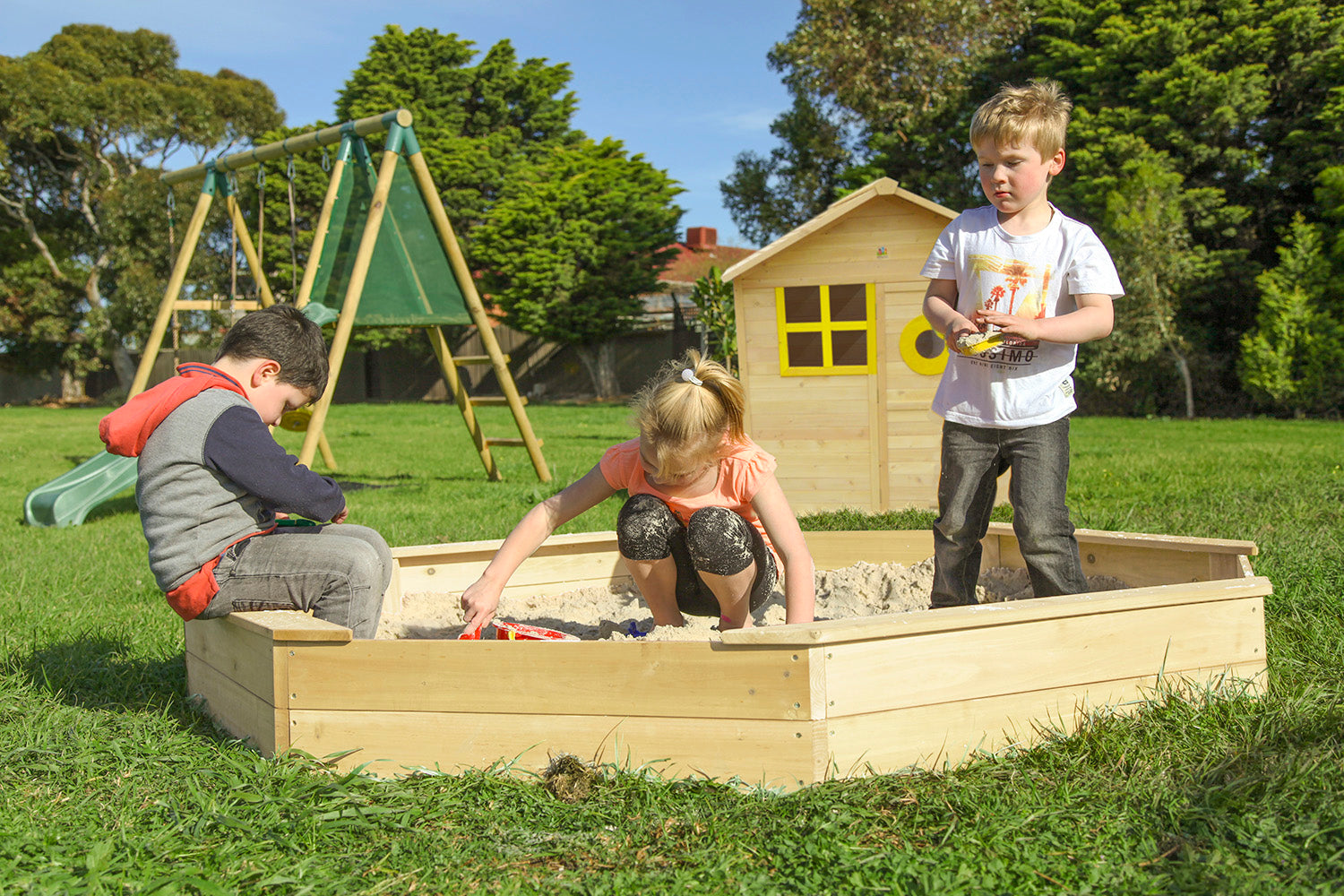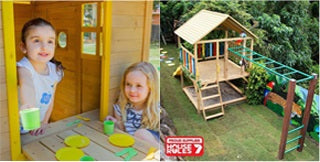The Blog
Building Teamwork: Cooperative Play in the Kids' Sandpit

Sandpits are a classic and timeless outdoor activity for children, offering numerous benefits for their learning and development, particularly when engaged with friends. They provide a dynamic outdoor environment that encourages physical activity and exploration, which is essential for children's overall well-being. Within the sandpit, children encounter various textures, shapes and materials, stimulating sensory experiences and cognitive development as they explore and manipulate the sand. They also offer a shared space where children can interact with each other. Through cooperative play, they learn essential social skills such as sharing and taking turns. The open-ended nature of sand play allows children to unleash their creativity and imagination. They can build structures, sculpt shapes and create imaginary worlds, fostering innovation and problem-solving skills.
Sandpits are dynamic spaces where children learn, explore and grow together, fostering teamwork and cooperation that extend beyond the confines of the sandbox.
Shared Creativity

When children collaborate in the sandpit, they can share ideas and work collectively to build structures, sculptures and imaginary worlds. This collaborative process creates a sense of community and shared ownership over their creations. Through shared play experiences, children can co-create their own stories, drawing inspiration from each other's ideas and contributions. This shared imagination not only enhances the play experience but also strengthens bonds. Shared creativity in the sandpit encourages children to explore their imaginations collaboratively.
Develop Social Skills

Sandpits offer a rich environment for the development of essential social skills. In the sandpit, children learn the importance of sharing and taking turns as they navigate the shared space with their peers. The sandpit also presents children with various challenges and opportunities for problem-solving. Whether it's figuring out how to construct a sandcastle together or resolving conflicts, children learn to brainstorm solutions, negotiate compromises and work collaboratively to overcome obstacles. Effective communication is fundamental to successful collaboration in the sandpit. Children learn to express their ideas and listen to others, exchanging feedback and suggestions. Through verbal and non-verbal communication, they develop essential language skills, emotional intelligence and the ability to work effectively in a group setting. Through this process, children not only enjoy sensory experiences and creative expression but also cultivate valuable social skills that are essential for collaborating effectively both within the sandbox and in various social contexts beyond the sandpit.
Tips for parents

Parents play a crucial role in supporting and enriching their children's experiences in the sandpit. It's important to encourage your child's exploration and creativity in the sandpit. Offer praise and positive reinforcement for their efforts and achievements, giving them the boost they need to develop confidence and a positive attitude towards learning and play. You can also arrange play dates with other children to provide opportunities for social interaction and cooperative play in the sandpit. Play dates allow children to develop friendships and learn to collaborate effectively with their peers. By doing this, you can help your children derive maximum enjoyment and developmental benefits from their sandpit. These simple tips contribute to a supportive and enriching play environment for children to thrive and grow.
Alternatives

While the kids' sandpit offers a dynamic and engaging play environment, there are still plenty of other options for building creativity and facilitating social interaction. Cubby houses provide children with a space to engage in imaginative play and role-playing activities. These miniature houses encourage creativity as children furnish and create their own imaginary worlds within the confines of the cubby. We also have an extensive range of play furniture to decorate your cubby house. Furniture like our range of play kitchens offer opportunities for children to role-play various scenarios through interactive play. This assists children in developing fine motor skills, creativity and social skills as they collaborate with their friends. By incorporating these alternatives such as cubby houses and play kitchens into children's play environments, parents can provide diverse opportunities for imaginative exploration, creative expression and social interaction, complementing the experiences offered by a sandpit.
Conclusion

Sandpits stand as a versatile and invaluable setting for children's play, building essential skills of teamwork, creativity and social development. Through shared experiences in the sandpit, children learn the art of collaboration, problem-solving and communication, laying the foundation for positive social interactions and friendships. As they navigate the sandbox environment, children develop essential social skills such as sharing, empathy, and conflict resolution, preparing them for future interpersonal relationships and collaborative endeavours. By embracing the values of cooperation and shared experiences, children develop the skills and confidence needed to navigate the complexities of the world around them, laying the groundwork for a lifetime of learning and exploration.















 Shop now, Pay Later
Shop now, Pay Later








